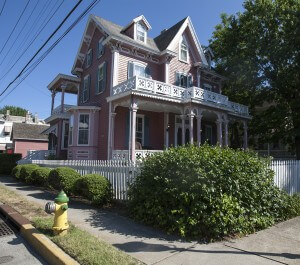
Cape May is one of the oldest seaside resort towns in America. The area was discovered by Henry Hudson in 1609 and became a booming vacation destination after the advent of the steamboat, which ferried in wealthy travelers from Philadelphia and Delaware. A huge fire destroyed about half of the town in 1878, but it was quickly rebuilt. Many of the painted lady-style houses, which give the town a distinctly regal feel, were constructed in the aftermath, between 1900 and 1920. According to National Park Service architectural historian Carolyn Pitts, “Cape May has one of the largest collections of late 19th century frame buildings left in the United States… that give it a homogeneous architectural character, a kind of textbook of vernacular American building.”
Below is a short photographic tour that depicts the gingerbread trim, gables, and turrets that helped to land Cape May on the list of National Historic Landmarks. (Click on the images to enlarge)
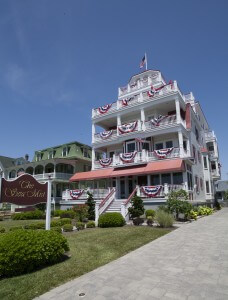
The world-famous Sea Mist on Beach Avenue. The red roof has beckoned sailors, who can spot it from out in the ocean, for decades. Built in 1873, with only two floors, the upper floors and cupola were added in the 1960s.
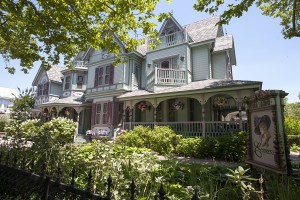
The Empress, formally the Bell Shields House, c. 1880, lovingly restored, but not open to the public.
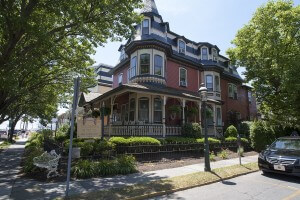
The original Columbia House, built in 1846, was destroyed in the fire of 1878. The current Queen Anne style cottage was built in 1886.
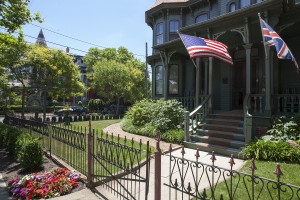
The Queen Victoria was built in 1881 by Douglas Gregory, a Cape May native and Delaware River pilot, as a home for his small family. The house sits on the site of the original Columbia Hotel, which was destroyed in the fire of 1878.
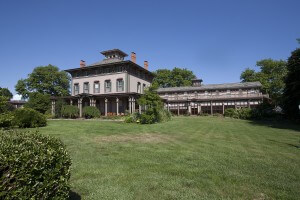
The Allen House (known as the Southern Mansion) was built in 1863. It is an Italianate-style mansion designed by Samuel Sloan.
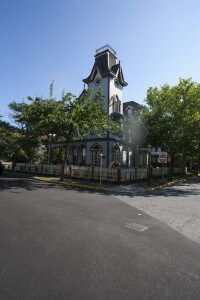
The Abbey, a Gothic Revival villa, built in 1869 for the wealthy coal baron, John McCreary, by architect Stephen Decatur Button.
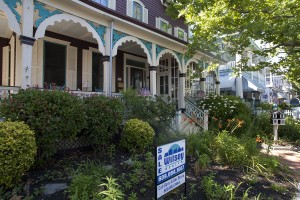
For only $1.6 million this Cape May Victorian can be yours! And it is only a little haunted:
http://johnfcraighouse.com/in-print/the-ghosts-of-cape-may-by-craig-mcmanus/
And just for fun:

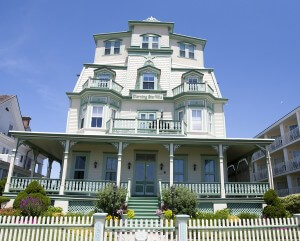
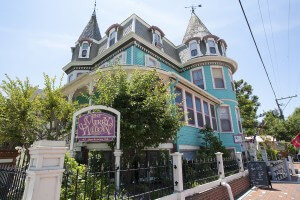
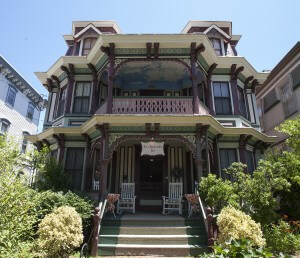
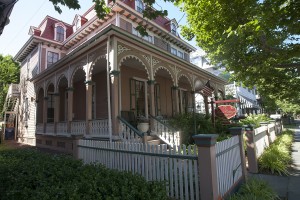
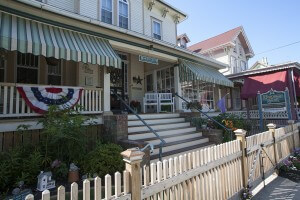
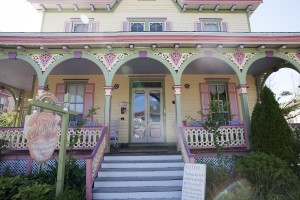
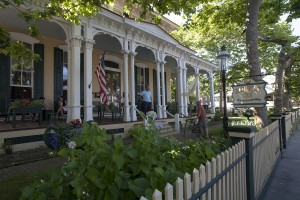
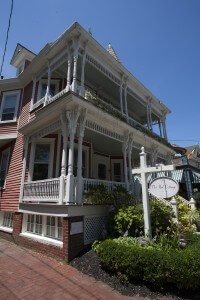
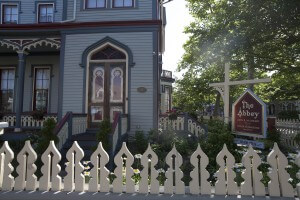
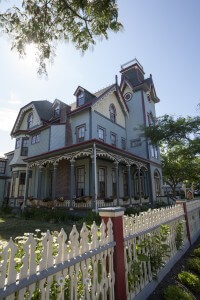
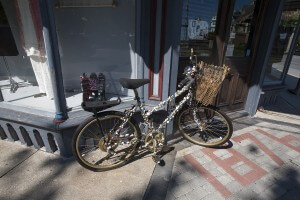
beautiful, beautiful, beautiful…………. thank you for feeding my 19 th century obsession!